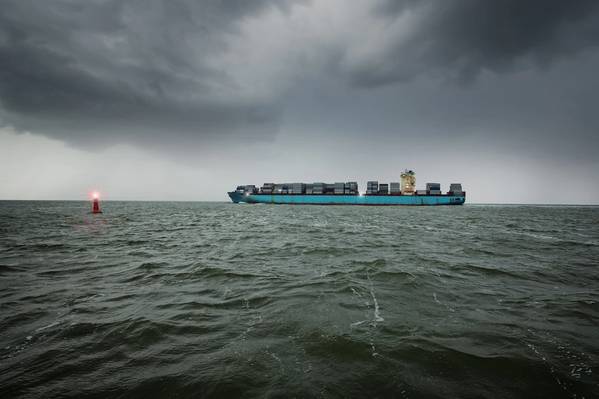
Supply chains around the world could be at serious risk amid expected increases in the cost of ocean freight shipping during 2024.
Oslo-based Xeneta has carried out in-depth analysis of the latest ocean freight rates and branded the current market as unsustainable.
Xeneta CEO Patrik Berglund said: “The cost of moving goods by sea has plummeted during 2023 by almost 60% for long term contracts on a global level and some corridors, such as the Transatlantic into US East Coast and Far East to Europe, down by around 80% on both short and long-term rates.
“In fact, freight rates are so low that shipping liner companies are effectively subsidising businesses to transport their goods around the world.
“The big shipping liner companies won’t allow this to continue and will jack up prices – it could be in 2024 or it could be later – but it’s inevitable and the carriers will want it sooner rather than later.”
Xeneta is warning businesses who locked into long-term contracts with shipping liner companies at the lower end of 2023 prices that they could be first to suffer if the market turns.
Berglund, speaking following the release of Xeneta’s Ocean Freight Outlook 2024, added: “The shipping liner companies will look at contracts agreed in 2023 and, in many cases, deem them non-profitable. They will take every opportunity they can to not transport those customer’s containers.
“Instead, they will choose to transport containers belonging to customers with healthier 2024 contract prices, if the market rises. It feels unfair, and perhaps it is, but the shipping liner companies are within their rights to do it.
“This is the kind of opportunistic behavior we saw from shipping liner companies during the pandemic to save their bottom line.”
“Businesses face a real challenge keeping supply chains intact if their goods are stuck in a port halfway around the world. It is therefore vital for companies entering negotiations for new contracts to have access to the very latest market data to understand whether, or when, this risk exposure becomes a reality.”
If there is a saving grace for businesses in 2024 it may be through continued over-capacity, which has reached record levels in 2023. If this overcapacity continues carriers will have no incentive to choose between transporting the lower or higher priced containers and will pick up both.
Dark skies on the horizon
The ocean freight sector has undergone a tumultuous journey in recent years as it recovers from congestion caused by Covid-19 at ports across the shipping networks.
The current global economic downturn has also resulted in declining consumer spending and demand for goods, which generally spells bad news for the shipping industry. Containers transported between the Far East and US West Coast alone have fallen by 16.2% during 2023.
Berglund said: “I think about underlying weak macro-economics; inflation, interest rates, cost of living and reduced global consumption of goods. On top of that you have turmoil across the world, whether it is in Ukraine or the Middle East, so there are some heavy dark skies in the horizon for the shipping industry.”
Emissions regulations are a conundrum
To add to shipping industry woes, 2024 will see the introduction of the EU Emissions Trading Scheme (EU ETS) and more stringent application of the IMO’s Carbon Intensity Indicator (CII), both of which will require ocean liner companies to pay for their emissions.
While Berglund welcomes the drive towards greater environmental and climate responsibility, he has hit out at unrealistic expectations.
He said: “The new environmental regulations will prohibit carriers from utilizing their fleet effectively because their vessels aren’t environmentally-friendly enough.
“The fact the cost of ocean shipping is so low means there is no money in the market. At the same time we are asking these huge, loss-making shipping liner companies to spend vast sums of money purchasing new vessels in order to make their green transition.
“Customers want ocean transport to be green but they are not willing to pay the bill. It’s a bizarre situation and a conundrum for the industry.”
In conclusion, Berglund is advising businesses reliant on the ocean shipping network to stay agile and responsive to emerging risks and opportunities during 2024.
He said: “If we have learned anything from the past few years, it is to expect the unexpected.
“Disruption is the norm and there could be market forces around the corner no one could have predicted. That’s why it’s so important to understand your supply chains and have real-time access to ocean freight shipping rate data and insight.”




